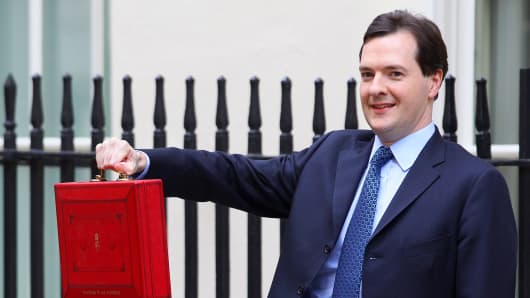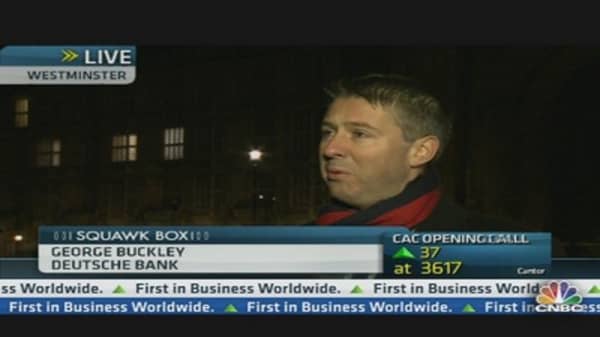British finance minister George Osborne presented his half-yearly budget statement to parliament on Wednesday.
"It's taking time, but the British economy is healing. After the biggest financial crash of our lifetimes, people know that we face deep seated problems at home and abroad.
"At home, we live with the legacy of a decade of debt and the failure to equip Britain to compete in the modern world. And we face a multitude of problems from abroad.
"The deficit has fallen by a quarter in just two years. And today's figures show it is forecast to continue to fall," he said.
Osborne said the British economy has performed less strongly than expected and a crisis in the euro zone will constrain growth for several years.
The economy will grow 1.2 percent next year and 2.0 percent in 2014, according to revised projections from the Office for Budget Responsibility, Osborne said. 2015 and 2016 forecasts were revised down to 2.3 and 2.7 percent respectively.
In March, the government's forecasting body said the economy was set to grow 2.0 percent next year, and accelerate to 2.7 percent in 2014, and to 3.0 percent in the following two years.
A Reuters poll taken last month predicted growth of 1.1 percent next year and 1.7 percent in 2014.
Britain may have escaped its second recession in four years last quarter but growth is seen marginal at best in the next 12 months. However, a slew of recent data has put the current quarter's meager expansion expectation in danger.
Figures published this week have made grim reading for Osborne and have pointed to a possible flat fourth quarter.
The chances of Osborne masterminding a strong recovery in time for voters to feel the benefits before a 2015 election appear to be shrinking.
"The picture of stagnation is a problem," said Rob Wood, an economist at Berenberg Bank, arguing that Osborne will probably have to announce more austerity for the years after the 2015 election. "Deficit reduction has gone into reverse this year."




